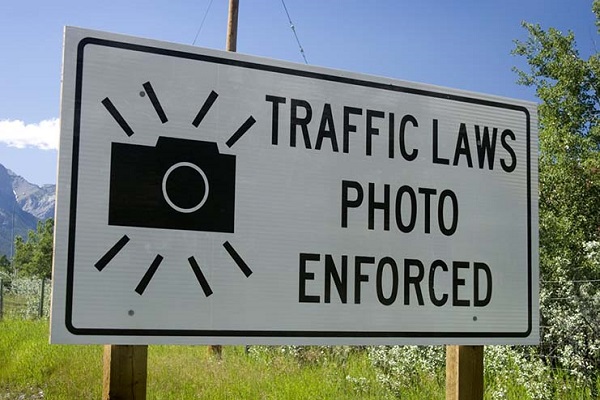David Durda is normally happy to have his 15-year-old son exposed to as many points of view as possible.
But the Airdrie, Alberta dad was deeply troubled when he learned an environmentally-focused non-profit, the 3% Project, was given the green light by school administrators to deliver what he believes is a misleading presentation to some 400 students at his son’s high school in October.
Some of the educational materials provided as part of the presentation contain what he considered to be misleading or incomplete information, and appear to directly target the fossil fuel industry and Alberta’s oil sands.
In just under two years, the 3% Project, the flagship campaign of the Toronto-based Foundation for Environmental Stewardship, has made presentations in 355 schools in more than 250 communities – from Mangilaluk School in Tuktoyaktuk, NWT, to Holy Heart of Mary High School in St. John’s, Nfld. – delivering the message that students represent “the final generation” who can solve a potentially “apocalyptic future.”
By next year, the project, according to its website, aims to make presentations in 600 high schools and ask 1 million Canadian youth (representing three per cent of Canada’s population) to sign the following pledge: “I am more certain that climate change is happening right now, that it is mainly caused by human activities, and that we’re the final generation who can solve it.”
In its stated goals, the group says it also aims to “identify and heavily invest in three youth climate leaders,” cultivate a further 20 “youth advocates” to spread its message, and plans to have 200 youth identified by name in local media outlets sharing the group’s message.
After hearing that his son was required to go to what he called a mandatory presentation at his school, Durda, who works for a Calgary oil and gas firm, began digging into the group, founded by a 25-year-old climate activist who, according to the group, attended climate leadership training led by former U.S. vice-president Al Gore.
“They have pretty ambitious plans and I believe the school was misled about what the presentation was about,” Durda said.
“In my mind, they just presented one view.”
Much of the information in the campaign is straight-forward.
But some of the educational materials being provided to children as young as Grade 6 contain questionable information.
A review of the 43-page 3% Project handbook, available through the group’s website, finds several questionable statements and data points:
- In making its case to battle “climate indifference” over Alberta’s oil sands, the non-profit suggests the International Monetary Fund (IMF) has estimated Canada is subsidizing its fossil fuel industry to the tune of $46 billion annually, which would account for 13 per cent of Canada’s entire 2019 federal budget. Not mentioned in the literature is the fact that that figure came from an IMF working paper, which according to a prominent disclaimer accompanying the report, doesn’t “necessarily represent the view of the IMF.” According to a 2016 study conducted by Canadian climate advocacy group Environmental Defence, annual subsidies from both provincial and federal governments amount to about $3.3 billion annually.
- The 3% Project also suggests that between 2003 to 2010, the fossil fuel industry “invested $558 million in climate denial groups.” The source of that information, a 2013 study from Drexel University, only reviewed donations from the United States during that period, and of the 140 foundations identified as funding these groups, the “overwhelming majority of the philanthropic support comes from conservative foundations,” while the fossil fuel industry itself barely warrants a mention in the academic paper. The literature provided to students suggests industry fosters campaigns of misinformation, with one of the project’s key rationales suggesting: “Public education for youth influences their parents and is the best weapon against disinformation by the fossil fuel industry.” The document also makes no mention of the millions of dollars invested by U.S.-based environmental charities to help disrupt Canada’s energy industry as well as derailing some critical pipeline projects.
- The report vilifies Canada for being “one of the most environmentally destructive populations per capita on earth,” citing, in particular, its globally high per capita rate of CO2 emissions. The literature fails to mention the fact Canada is middle of the pack when it comes to G7 countries, according to the World Bank, and its 537,000 kilotons generated are a bare fraction of those produced by the world’s top three emitters: China, the United States and India, which in 2014 contributed about 18 million kilotons between them. As well, Canada is quickly becoming a world leader in cleantech oil and gas development while making significant progress in lowering the intensity of greenhouse gas emissions in Alberta’s oil sands.
- The literature also talks about “the possible apocalyptic future we may inherit.” While the United Nation’s Intergovernmental Panel on Climate Change’s most recent special report on climate, released in October 2018, highlights several risks associated with climate change, including increasing global temperatures, potential droughts, increased flooding, incremental sea level rising and significant risk to some ecosystems, participating scientists consider many of its predictions to be “medium confidence,” compared to other designations of low and high confidence used by the scientists who make up the panel.
A 3% Project spokesperson, through its website messenger system, declined to make anyone available to comment on any of the concerns raised prior to the publication deadline.
In a statement, the Calgary Catholic School Division said individual school principals are encouraged to invite external groups, and are given guidelines to aid in making those decisions.
“The Calgary Catholic School District recognizes the value of external agencies and organizations to provide information to enhance the curriculum and benefit student learning,” it read.
“Principals are encouraged to invite various external organizations to present information that strengthens the curriculum. Principals are given guidelines to assist their decision-making regarding the circulation of any balanced, approved materials or information at the school level.”
However, correspondence from the school’s principal to Durda included an apology for how the presentation came to be, suggesting it wasn’t thoroughly vetted beforehand.
“I did … apologize and agreed with you that we learned from this, that we need to vet the presentation more thoroughly, but also shared the 3% presentation wasn’t one we would bring back because it didn’t hit home with the kids,” read an email, in part, sent to Durda following the presentation.
Durda said he had recommended a separate presentation from Modern Resources CEO Chris Slubicki, who has emerged as a measured voice from industry touting the innovations and benefits of Canadian energy, which could educate students on the positive improvements that continue to be made, including a 30 per cent reduction in greenhouse gas emission intensity of oilsands crude since 1990, and producing increasingly cleaner burning natural gas.
However, he was told such a presentation should be initiated by his son and like-minded peers, and would only be in front of a much smaller assembly of students who showed an interest in attending, which Durda feared would put his son in an unfair position.
According to documents from Revenue Canada, as a registered charity, the Foundation for Environmental Stewardship received some $545,000 from other registered charities in 2018. Among their sponsors are the Butterfield Family Foundation, Lush Cosmetics, the City of Vancouver and Service Canada.
In the group’s handbook, its authors suggest children are not being given all the facts about climate change and the fossil fuels industry. And it aims to mobilize kids as a conduit to influence their elders.
“Children engaging their own parents and grandparents most effectively cultivates behavioural change. Parents start taking action on climate out of love for their children, not of principle,” the handbook reads.
“And they can’t be lied to. Public education must engage youth with the facts before they are thoroughly confused with climate disinformation.”
For Durda, the fact the group was able to get into his son’s school has left him concerned about how many other Canadian students will be influenced by the 3% Project’s message.
“They only presented one view and I thought that view was pretty misleading.”





















